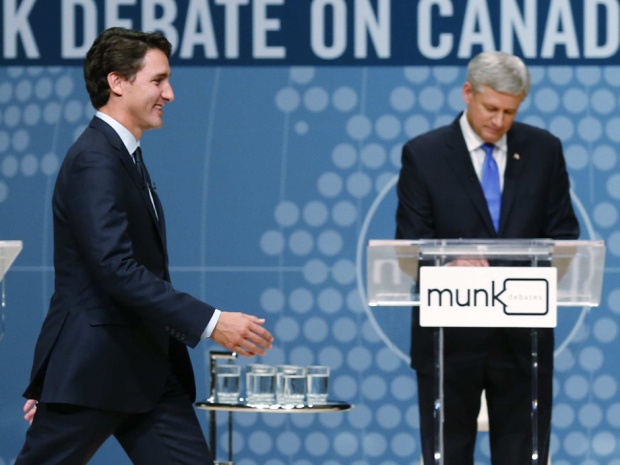Resources > Blog > Maintaining Workplace Respect during the 2015 Election: Some Tips to Consider

Yesterday, workers and leaders throughout Canada went to the polls to vote for Canada’s next leader and governing party.
There has been a lot of “talk” and commentary leading up to this election – in person, on social media, and generally. I suspect this discussion will “intensify” this week as voting takes place and the results are announced.
Political beliefs strike at the heart of one’s identity, culture and background. As a result, “talking” politics and “exchanging” political views is a sure fire way to trigger “passionate” debates and disagreements in workplace offices, boardrooms and lunchrooms everywhere.
Is there anything wrong with this? Using my oft-quoted “legal response”, well …. “it depends”.
Let’s be clear. There is nothing inherently wrong with encouraging healthy debate and disagreements at work. Too many organizations shut down diversity and debate out of fear of “offending” someone or concern about the consequences of challenging the status quo at play. This silencing and resulting workplace sterility may, in itself, be seen as offensive and problematic.
What “becomes” wrong is the way in which we speak to those who hold political views that differ from ours. What “becomes” wrong is how we treat those individuals after the “political debate” is over.
In the work that I do, I hear many stories of individuals “shunning”, mocking, belittling and refusing to work with individuals who hold differing political (or religious or cultural) beliefs.
A healthy respectful workplace provides individuals with a safe environment in which to share their political views without fear of fall-out from those who disagree with them, (provided that the views being expressed do not – in and of themselves – contravene current legal expectations surrounding human rights).
A healthy workplace allows the debate – indeed fosters the debate – yet prohibits the sarcastic and often “mean” commentary and personalized attacks that accompany the debate.
Two common Marli-isms apply to discussions that may be taking in your workplace this week.
First, it is all about the HOW. Don’t focus too much on the content of the political debates/discussions. Focus primarily on how people are treating and speaking to each other while having those discussions. Ensure you put an end to the “disrespectful” behaviours – both verbal (e.g. name calling, irrelevant personal commentary) and non-verbal (e.g. sarcastic tone, demeaning facial expressions/hand gestures /body language) that may be accompanying the substance of the political debate.
Second, know that the WHY will never justify the HOW. All too often, individuals acknowledge that they “blew up” at someone, “really let them have it” or simply “wrote them off” because they so intensely disagreed with the other person’s political views. At home and in one’s personal life, this may be acceptable. However, at the workplace, it is not. The reason WHY someone decides to treat someone else disrespectfully will never justify the disrespect – ever. Everyone is entitled to basic courtesy, respect and communication from everyone else at work, regardless of their personal opinions about each other and the opinions they hold, political or otherwise.
Freedom of expression is the cornerstone of democracy. However, it must co-exist with the right to work in a respectful and safe environment.
Allow the discussions – encourage the discussions – grow comfortable with the discussions. Just ensure that they are carried out with respect.
